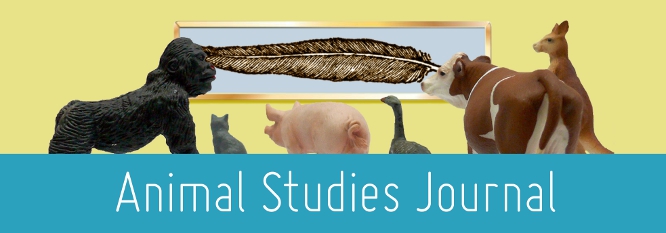Home > assh > ASJ > Vol. 5 (2016) > No. 2

Abstract
This essay has two primary aims: 1) to provide an introductory definition of the concept of the fleischgeist and 2) outline what it means for novelists to ‘write the fleischgeist’. This essay emerges from my own desire, as a writer of fiction, to consider how, practically, I can expose and explore interconnections between carnist and misogynistic violence without lapsing into a conceptual perpetuation of such violence. Coupled with this practical desire is the recognition that there is a rich body of modern and contemporary fiction that makes visible some ways in which the logic of carnivorous patriarchy (or, carnophallogocentrism) plays across histories, cultures, literatures and in every day life. It is my view that some novels write the fleischgeist. In the following essay I consider what this phrase, writing the fleischgeist, means. Then I sketch out what the fleischgeist is, and offer examples of the way it manifests in everyday life and works of art. Finally, I turn to Deborah Levy’s wildly experimental novel, Diary of a Steak (1997), as an example of a contemporary work of avant-garde fiction that writes the fleischgeist. I advocate for Levy’s use of the avant-garde narrative strategy of collage as a particularly powerful technique that illuminates multivalent perspectives on shared human-animal suffering that conventional tools of representation (and their governing logics of linear thought) elide. This essay concludes by suggesting that being aware of the fleischgeist as a complex and nuanced cultural phenomenon can allow writers to expose and explore knots of violence that bind humans to other species, and each other, in relations of suffering.
Recommended Citation
Singer, Hayley, Writing the Fleischgeist, Animal Studies Journal, 5(2), 2016, 183-201.Available at:https://ro.uow.edu.au/asj/vol5/iss2/9
Included in
Digital Humanities Commons, Feminist, Gender, and Sexuality Studies Commons, Fiction Commons, Philosophy Commons, Social and Behavioral Sciences Commons, Theatre and Performance Studies Commons

